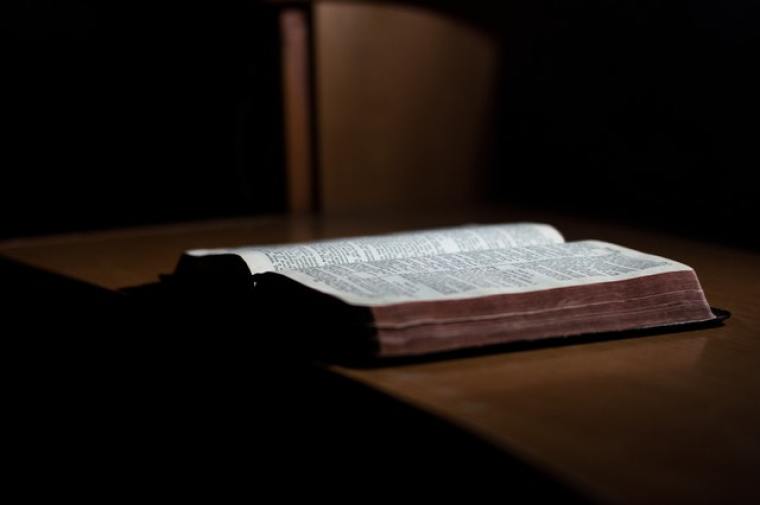
Dr David Lim was the kind of doctor you have nightmares about.
Working out of a clinic in Hastings, Dr Lim would have patients come in with minor ailments. On five separate occasions, Dr Lim gave the patients the sedative Midazolam – a drug that causes sleepiness and a lack of ability to remember what is happening.
He then led the patients to a dark room or toilet cubicle, and sexually assaulted them.
In May 2017, Dr Lim was sentenced for five years prison. Those who followed the story shuddered as they imagined it – and were relieved that justice was done.
But what happened when they got sick?
I imagine most New Zealanders – like myself – booked themselves in with the doctor, and went off to their appointment without a care in the world. We recognised that Dr David Lim’s actions were a perversion of a good role, that is essential for society.
We didn’t abandon medicine, or the idea of medical authority. Instead we recognised that expertise in this domain was essential – and we need doctors to keep us well.
Now, in the last blog, I wrote how the modern world promises freedom from throwing off any boundaries or authority-claims on our life. Religion, tradition, mystery and history are seen to be limitations on our life – and by seeking freedom and making our own meaning, we can become all that we are destined to be.
Instead, as theologian Craig Gay and countless other sociologists argue, we are delivered with a world fraught with anxiety and paralysis at the gargantuan task of creating our own meaning. True freedom, I briefly argued, is found when we live our lives within the parameters of their design – under the limitations and freeing-authority they were created for.
The logical question is then – “Well, whose authority do we dwell under?”
The Sunday school answer – “God’s” – is on the money. And yet, it can be easy to say this, but a little more difficult to perceive. What does it mean to live under the authority of God? How do we do this? How does this not just become a saying we spout, while we go on living as if God does not exist?
So how do we live under the authority of God?
One of the answers the Bible – and church history – suggests is an unpopular one. We live under the authority of God, by living under the authority of our church leaders.
Rebelling Cells
Even as I write that, I feel every cell of my body rebelling. It feels old-fashioned, small-minded and dangerous to be suggesting that perhaps we are designed to live under the authority of others. Isn’t that what the Reformation raged against?
According to American sociologist and historian Talcott Parsons – yes, that is what they reacted against – but perhaps they pushed the freedom beyond its logical limit. He writes,
“The individual is responsible not only for managing his own relation to God though faith within the ascribed framework of an established church…but for choosing that framework itself, for deciding as a mature individual what to believe, and with whom to associate himself in the organisational expression and reinforcement of his commitments…he is endowed with full responsible autonomy.”
Parsons and others argue that the Reformation reacted against the dangerous abuses of power in the church – by setting in motion a course that throws out any power in church. By focusing on the primacy of the individual, a track was set that would firmly rebel against any sense of authority that would limit our individual choice.
Now – to be clear – some of this is justified. There have been incredible evils committed by powerful people in the church – both Catholic, Protestant and Eastern Orthodox. Wicked leaders have used their position to enable all kinds of abuses – and the church has often played a poor role in exposing and condemning these people.
But, part of this reaction against any authority is unjustified. It is part of a faulty belief system that ultimate spiritual authority rests in me. I can choose what I believe, I can adapt my theology to suit my needs, and can argue why my beliefs work for me – without ever considering that I might be wrong.
We can see this across the church spectrum – in discussions about worship, morality, theology, preaching, ministry – wherever there are people, there is often this strong individual belief that I can choose the right way.
For example – when facing big life decisions, most Christians tend towards two different approaches.
The first option is to pray and seek God’s will towards the matter. They may fast, and search the Scriptures for a word, or sense God’s Spirit speaking to their spirit.
The second approach is to use their God-given common sense, to weigh up the options and move forward.
Neither approach is bad – but both are strongly individual.
Imagine if instead – when you were considering a new career path, a marriage partner, a large investment – any of the substantial moments of your life – you brought it to church leadership for their advice and input?
Perhaps some of us already do this – but I imagine for many this is due to a friendship they have with the leader. What if instead this was a perception we had of church leadership – and a perception they had of their own role – as providing leadership over their community’s lives?
Father Joe
This past Christmas my sister gifted me a book called Father Joe: The Man Who Saved My Soul. This fantastic biography is told by Tony Hendra, perhaps best known for his role as Spinal Tap’s band manager in their self-titled mocumentary.
As a young boy, Tony Hendra had made-out with a married woman. Her husband, furious, took him to see a Catholic priest, Father Joe. Tony writes of how fearful he was – awaiting the beating and judgement that Father Joe would surely provide.
Instead, Tony met a man who would play a pivotal role in his life. Father Joe would tell him when he was wrong, rebuke him, encourage him, love him – and in all he did – lead him in a way that was profoundly spirit-led. It was a loving relationship – yet it was an unequal one. Father Joe was the leader, Father Joe was in control. Tony could always choose how to respond – and many times he ran away from Father Joe’s leadership. Yet it was always there.
Perhaps one of the biggest reasons my body repulses under this idea of putting myself under the authority of others is because of sin. The central lie at the heart of the cosmos is “You are in control. You don’t need God.” This was whispered by Satan in the first pages of Genesis, and is now shouted from the rooftops of business and entertainment.
And it’s a tempting lie. I want to believe I don’t need the authority of others. I want to believe that I’m quite good figuring out this Christian life by myself, thank you very much.
But when I look at the early church, the apostles, the church fathers – almost all of them had people who they were under – and people under them. This authority and leadership was a natural part of the church.
Were there disagreements? Sure.
Was it difficult? Of course.
But this was assumed as the natural order of things. Paul writes at the heart of his letter to the church at Ephesus – “Submit to one another out of reverence for Christ.” Let your lives be under the authority of others – the wise, loving, spirit-led authority of healthy leadership.
This is not a call to mindless following of authority. But this is a suggestion that perhaps we’ve allowed individualism to creep into places it had no place being.
I encourage you to imagine – what could this look like in the church of 2018? Living within a culture of hyper-individualism – how could followers of Jesus practice this type of living? What could be done to stop this becoming abused – and how have you seen glimpses of healthy living under authority in your life?
First published March 13, 2018 on www.jeremysuisted.com.

Jeremy Suisted is from Cambridge NZ a Creative Consultant and was once voted in the Top Six Waikato’s Hottest Muffin Bakers.